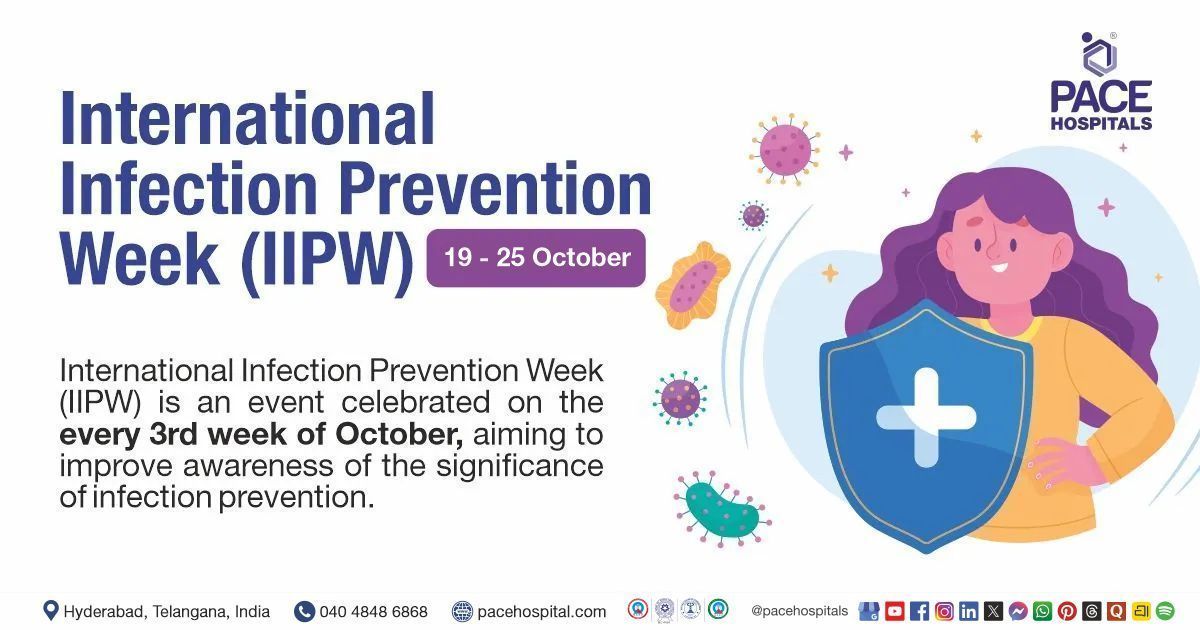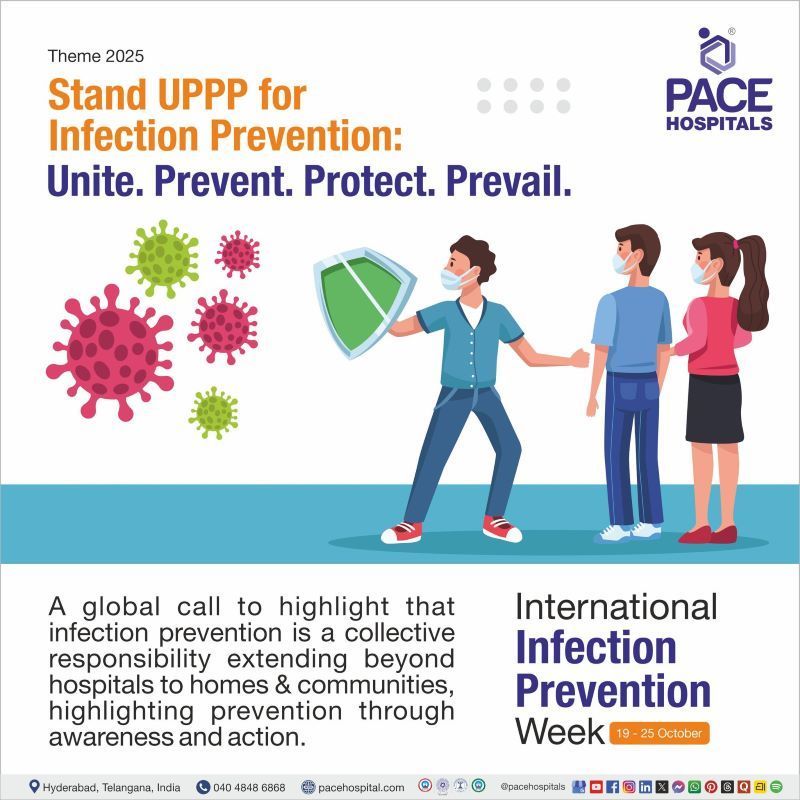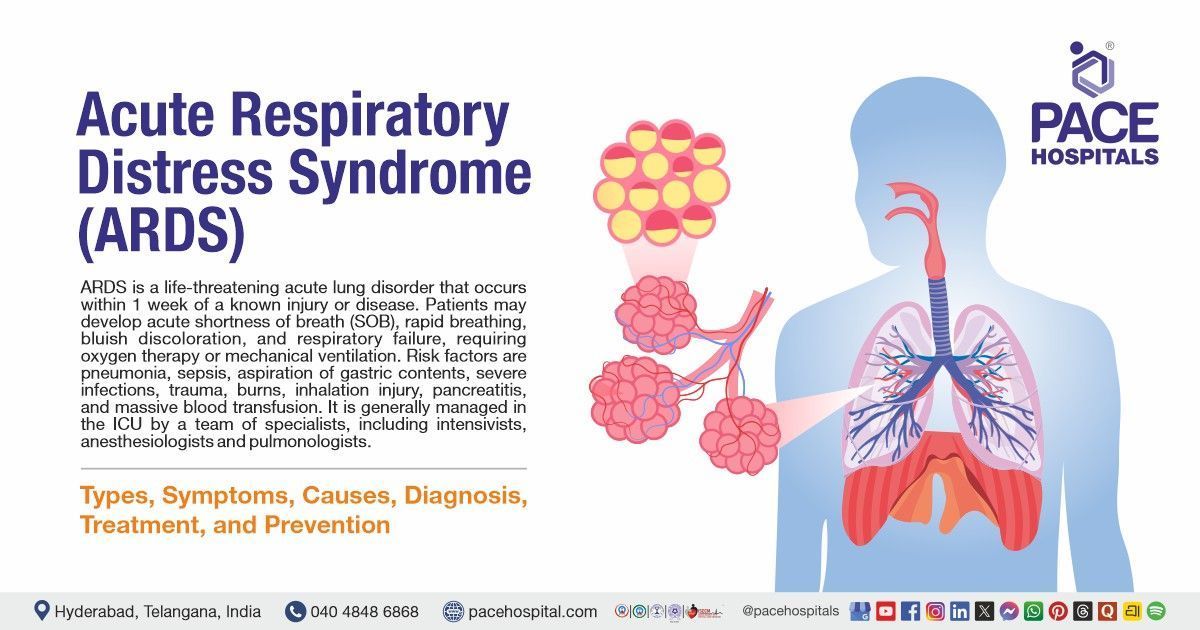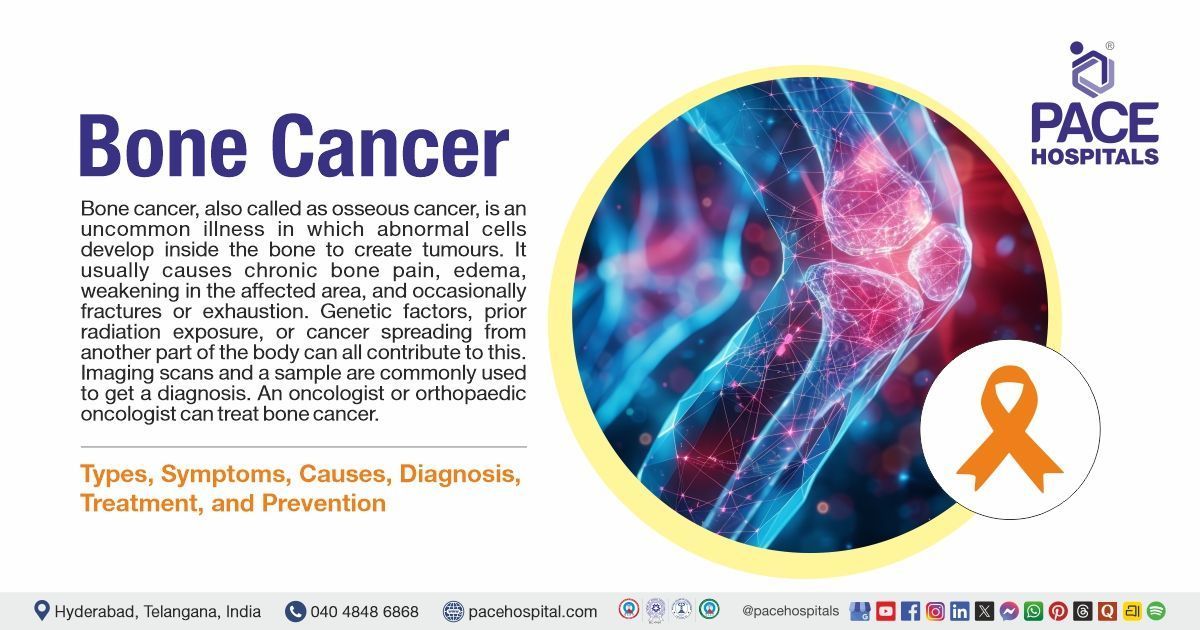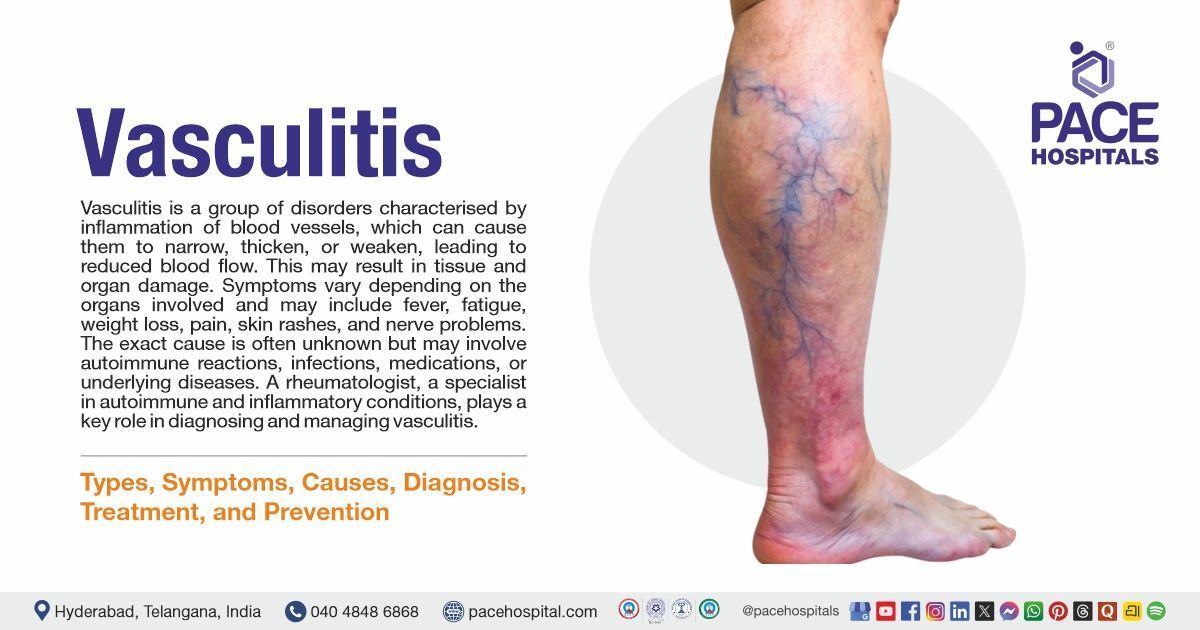International Infection Prevention Week, 19th – 25th October, 2025 | Theme, Importance & History
PACE Hospitals
International Infection Prevention Week (IIPW) is an event celebrated on the 3rd week of every year in October, aiming to improve awareness of the significance of infection prevention.
This year 2025, International Infection Prevention Week is celebrated from 19th to 25th (Sunday to Saturday). On this week, Infection preventionists (IPs) from different countries and fields will join together to educate healthcare workers and patients about infection prevention practices. This collaboration aims to prevent the spreading of infections and works towards an infection-free society.
Importance of International Infection Prevention Week
Infections often occur from poor hygiene and practices in hospitals. Infectious diseases can lead to global pandemics when they spread rapidly. Infections in homes, workplaces or hospitals can affect people's health and make it harder for healthcare workers to do their jobs.
Every year, infections from hospitals can lead to many health problems. According to the WHO, no healthcare facility is immune to hospital-acquired infections (HAIs). In some countries, at least 0.2 crore people get sick, and 23,000 die from hospital-acquired infections (HAIs) yearly. HAIs can be caused by poor hand hygiene, disinfection of hospital equipment, inadequate cleaning and overcrowding. It is essential to follow good hygiene practices in hospitals and other healthcare facilities to decrease the risk of developing Hospital-acquired infections (HAIs).
During the hospital stay, about 7 out of 100 patients in high-income countries and 15 out of 100 in low- and middle-income countries develop healthcare-associated infections. On average, one out of every ten patients affected by healthcare-associated infections will die from it.
According to a WHO report, 70% of infections can be prevented by proper hand hygiene and other cost-effective practices.
IIPW aims to better understand the infection and its prevention and use the knowledge to make people safer and healthier. The Association of Professionals in Infection Control and Epidemiology (A.P.I.C.) came up with slogan "Be a champion", a campaign urges staff to:
- Give priority to maintaining proper hand hygiene by washing hands frequently
- Wear the correct PPE- Personal Protective Equipment
- Maintain social distancing at workplaces and in social settings.
International Infection Prevention Week 2025 Theme
This year, 2025, the International Infection Prevention Week theme is "Stand UPPP for Infection Prevention – Unite, Prevent, Protect, Prevail". This theme emphasizes that infection prevention is a collective responsibility extending beyond hospitals to homes and communities, highlighting prevention through awareness and action.
UPPP stands for:
Unite: Everyone, including healthcare personnel, patients, and communities, works together.
Prevent: Simple precautions such as handwashing, vaccination, and proper hygiene.
Protect: Targeting vulnerable groups such as youngsters, the elderly, and those with weakened immunity.
Prevail: Being prepared and overcoming infectious difficulties through teamwork.
Year by year, the themes for International Infection Prevention Weeks are:
- International Infection Prevention Week 2024 theme: Moving the Needle on Infection Prevention
- International Infection Prevention Week 2023 theme: Celebrating the Fundamentals of Infection Prevention
- International Infection Prevention Week 2022 theme: 'The Future is Infection Prevention'
- International Infection Prevention Week 2021 theme: 'Make Your Intention Infection Prevention'
- International Infection Prevention Week 2020 theme: 'We Love Ips'
- International Infection Prevention Week 2019 theme: 'Vaccines are everybody's business'
- International Infection Prevention Week 2018 theme: 'Protecting patients everywhere'
History of International Infection Prevention Week (IIPW)
In 1986, Ronald Reagan (U.S. president) created International Infection Prevention Week (I.I.P.W.) and celebrated every third week of October to manage infections and to educate the public and healthcare workers about infection prevention practices.
From the United States, this I.I.P.W. week has spread throughout Asia, Africa, Europe and other regions of the world. The Association of Professionals in Infection Control and Epidemiology (A.P.I.C.) will lead the week's events to tackle the infection issues globally.
Over three decades ago, the Association of Professionals in Infection Control and Epidemiology (A.P.I.C.) chooses a theme for I.I.P.W. to guide publications and presentations about infection prevention and to inform the public about the latest developments and trends in the field.
Every year, the Association for Professionals in Infection Control and Epidemiology (APIC) conducts campaigns to educate healthcare workers, legislators, administrators, consumers and the public about the significance of infection prevention.
Generally, it focused on several topics such as personal hygiene, strategies to stop the spread of infections and honouring the work of infection preventionists in keeping the public safe from pandemics globally. Infection preventionists (IPs) are crucial in reducing hospital-associated infections by at least 30%.
Texas Children's Infection Prevention and Control department aids IIPW in highlighting the significance of infection prevention and creating awareness of everyone's role in safeguarding the public's health.
Basic Infection prevention
These are the following ways to prevent infection by patients and families:
- Hand hygiene: Frequently clean your hands
- Vaccination: Know about vaccinations
- Injection safe: Talk about safe injection practices with your healthcare team
- PPE: Wear the right Personal protective equipment, such as face masks
- Cleaning and disinfection: Keep the surroundings clean
- Professional help: Clarify the queries about infections and their prevention with healthcare professionals.
- Follow proper respiratory hygiene (Catch it, bin it, kill it)
Share on
Request an appointment
Fill in the appointment form or call us instantly to book a confirmed appointment with our super specialist at 04048486868

